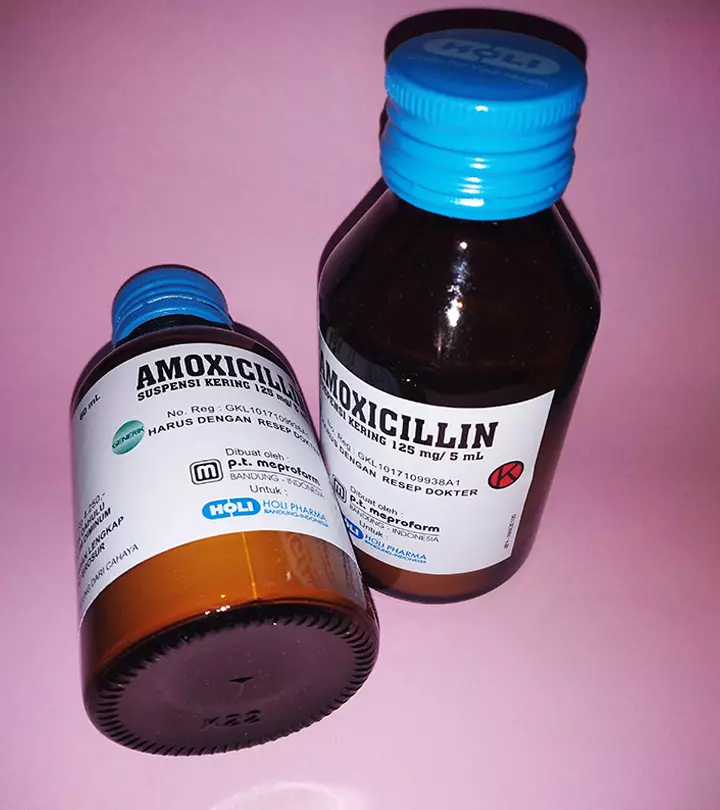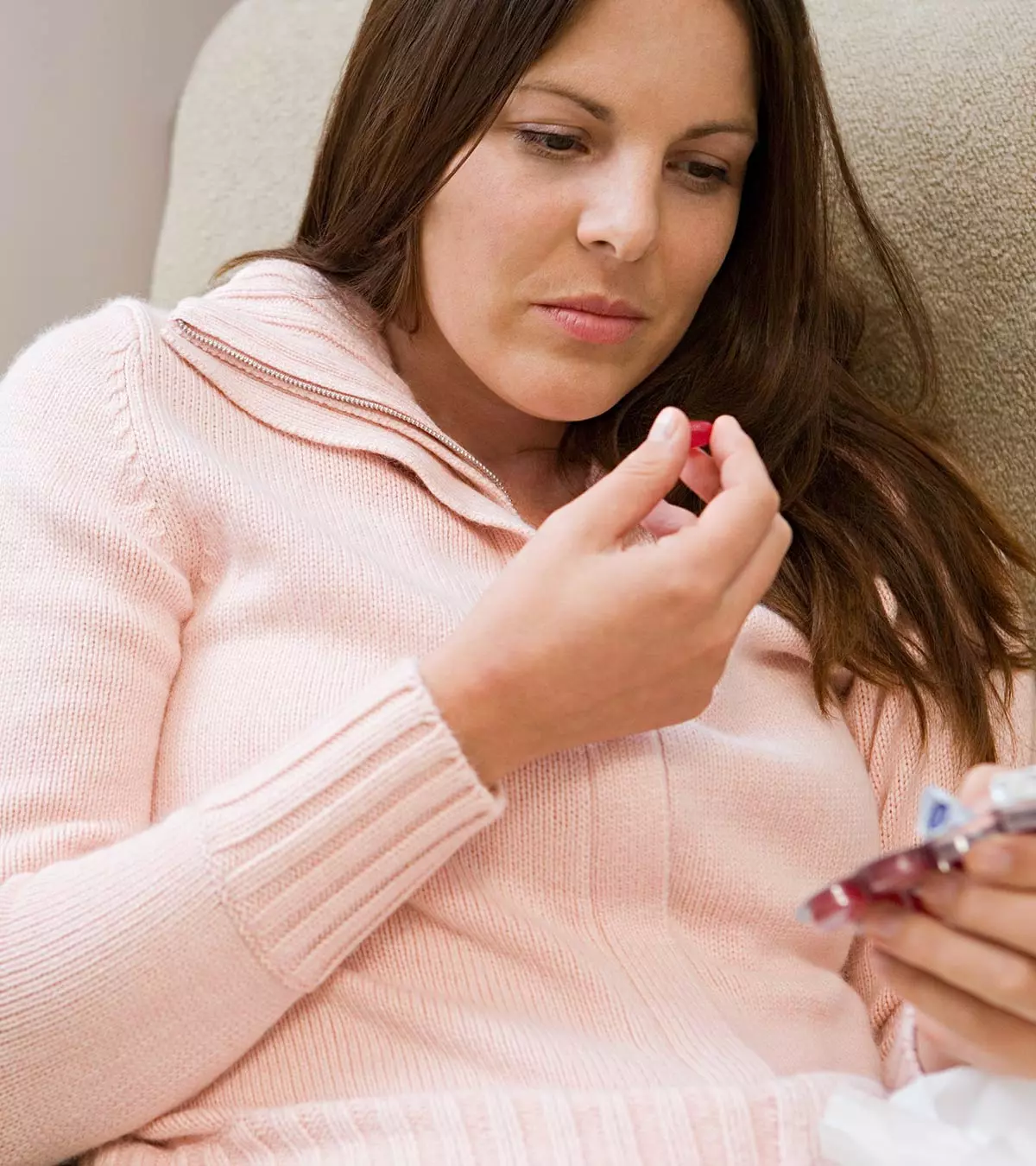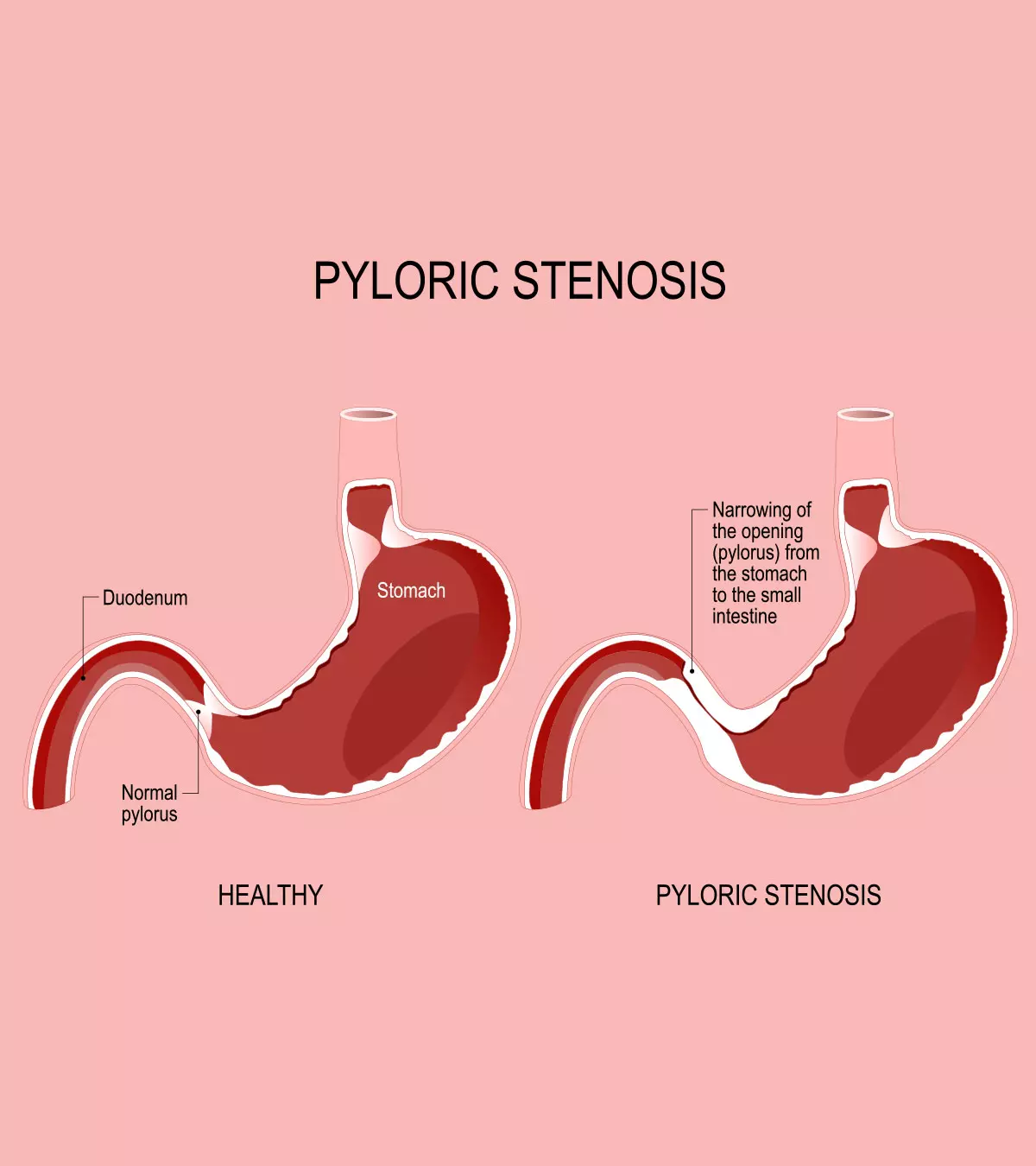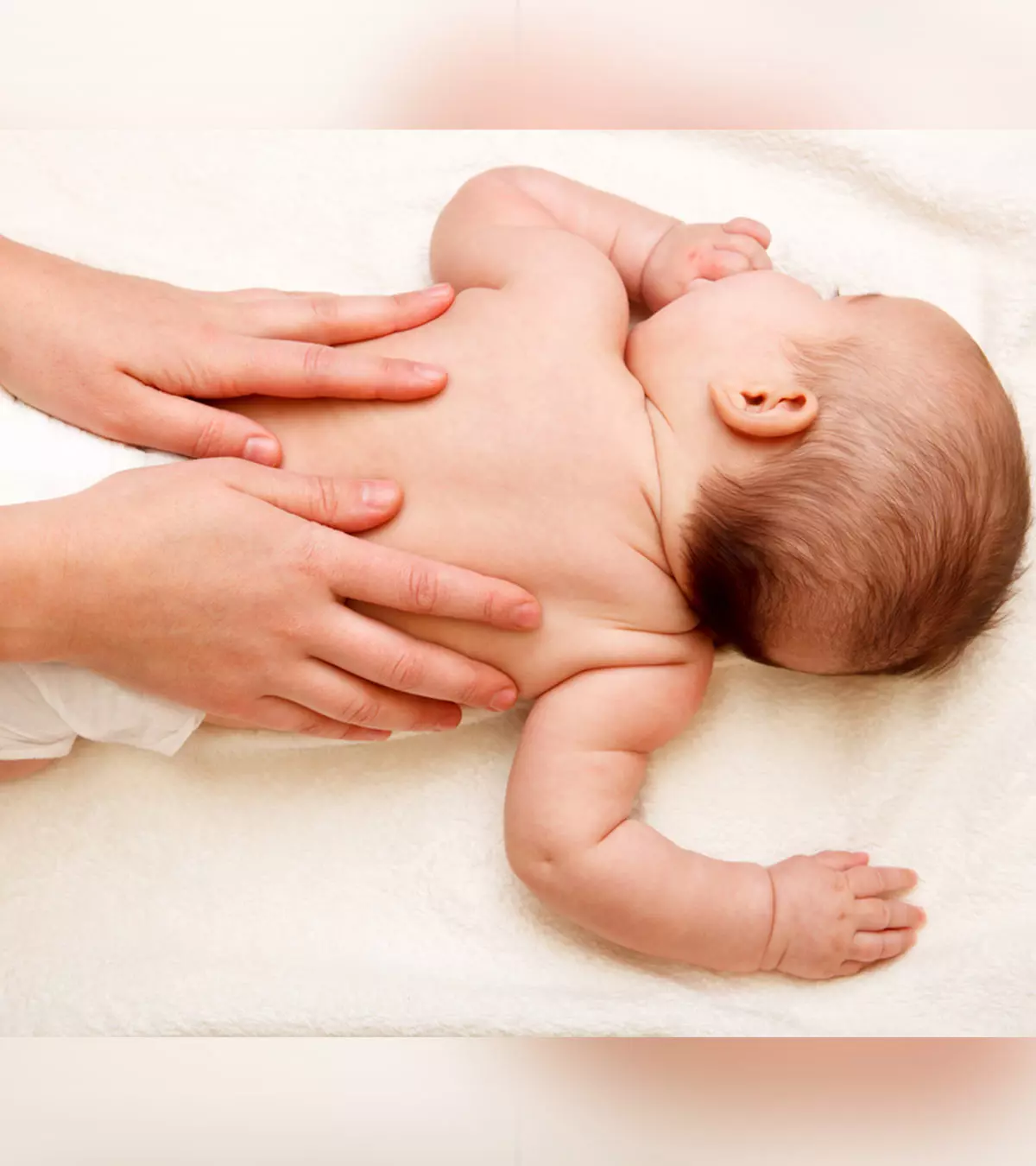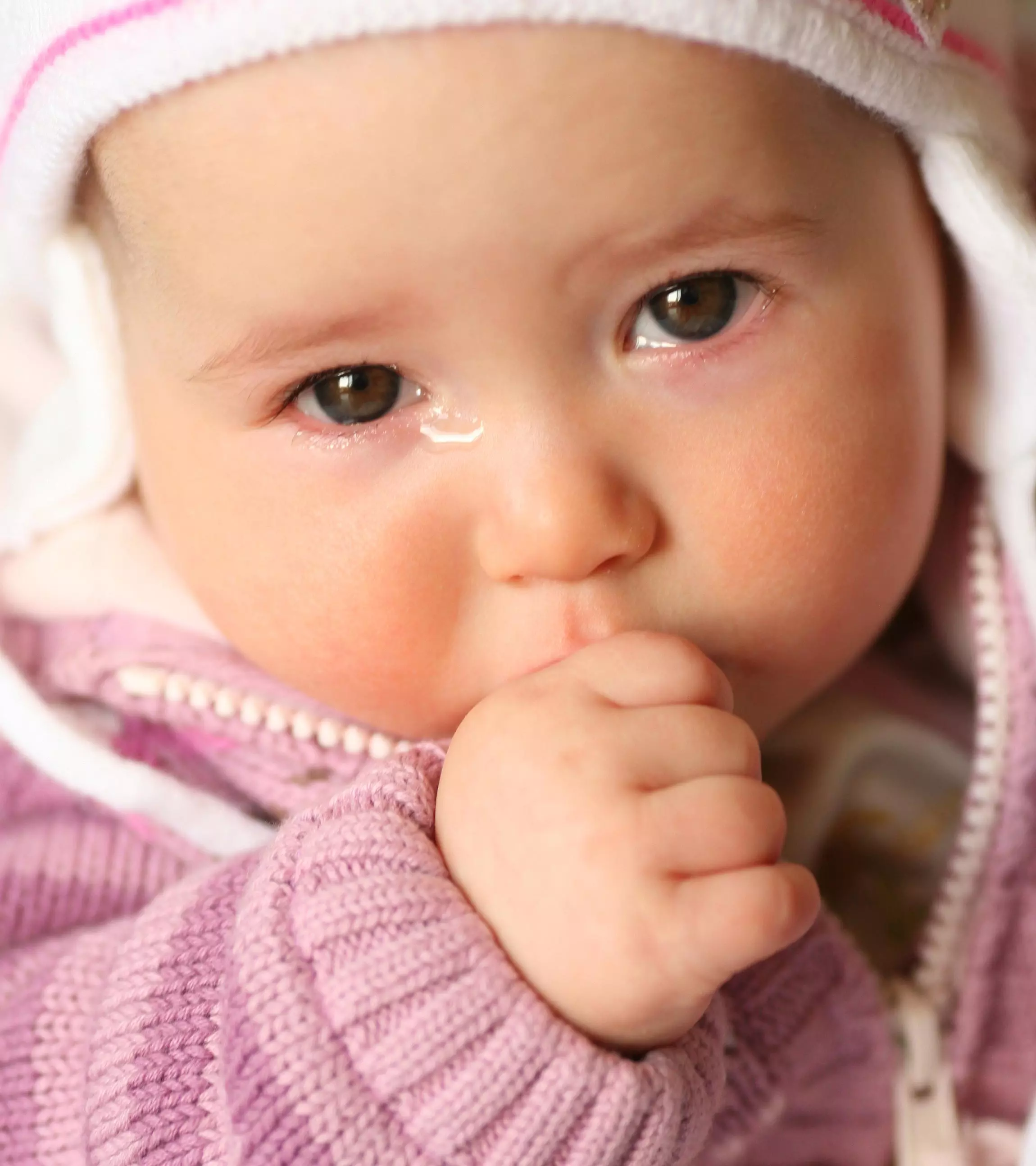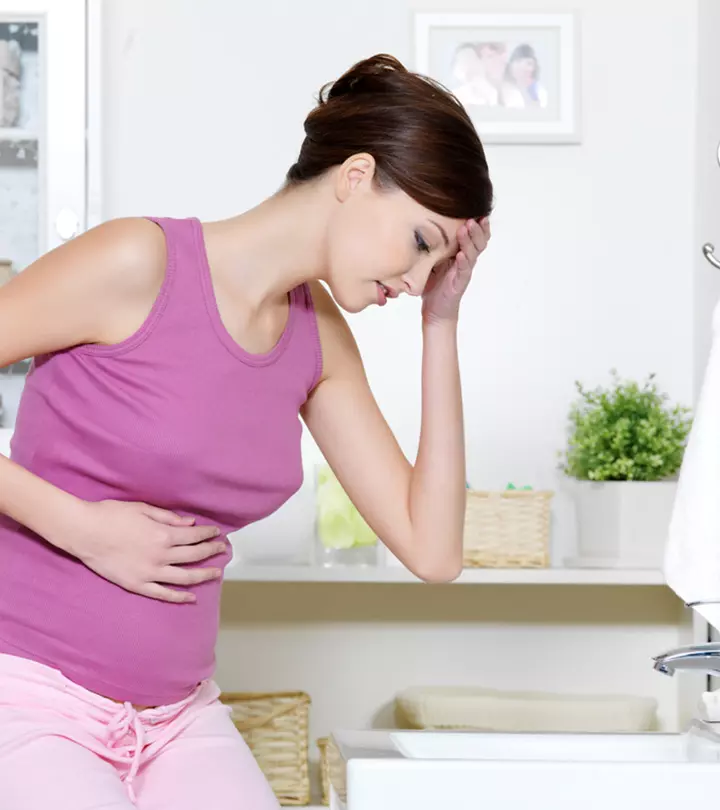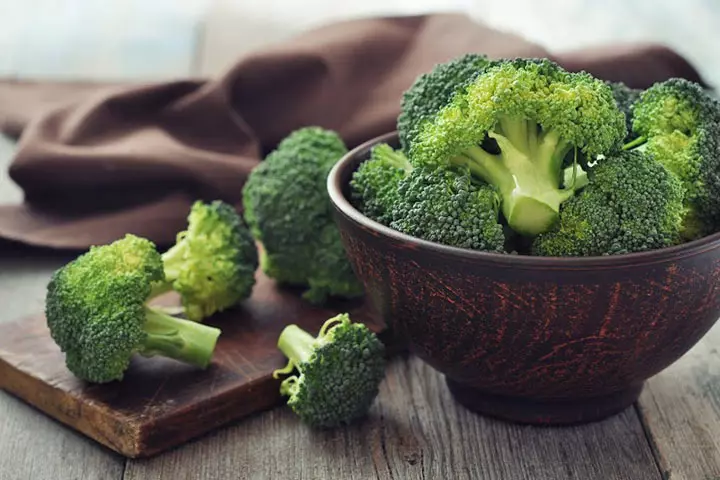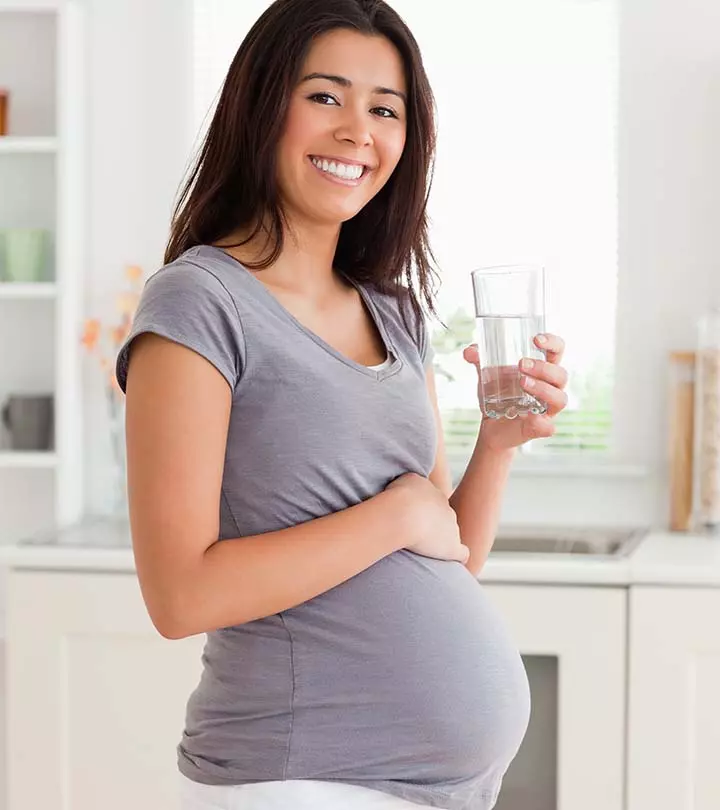
Image: Shutterstock
Water is essential to perform different physiological functions in the body, and its need increases during pregnancy. So, how much water should a pregnant woman drink? Knowing this can help you stay adequately hydrated and reduce the risk of common pregnancy discomforts such as constipation, swelling, and urinary tract infections. The body derives water from the fluids and foods you consume, and its daily requirement depends on factors such as physical activity levels, body size, and weather conditions.
Keep reading to know how much water you should drink when pregnant, its benefits, and practical tips to ensure sufficient water intake.
Key Pointers
- Water is necessary to regulate body temperature, transport nutrients, and excrete waste.
- Increased blood volume and amniotic fluid formation are a few reasons for increased water requirement when pregnant.
- Pregnant women should drink about 8 to 12 cups of water daily to stay adequately hydrated.
- Staying hydrated during pregnancy helps support digestion, reduces edema, and prevents constipation.
- Consuming hydrating foods and beverages, such as soups, shakes, and water-rich fruits and veggies, can help meet hydration needs during pregnancy.
Why Is Drinking Water Important?
Water is an essential nutrient that makes up 55 to 60% of our bodies and plays a crucial role in several bodily functions such as (1) (2) (3):
- Regulating the internal body temperature through sweat and respiration
- Transporting metabolized food and proper nutrition through the bloodstream
- Excreting waste products from the body through urine, sweat, and stools
- Lubricating joints
- Forming saliva
- Acting as a shock absorber for the brain, spinal cord, and fetus
Drinking water is a good way to maintain fluid requirements as it contains zero calories. Generally, an adult requires about 2.2 to 3 liters of fluids daily, but the requirement varies with age, sex, where a person lives, pregnancy, and breastfeeding status (2) (3). Individuals can meet their total daily water (fluid) requirements from plain water, hydrating foods, and other beverages.
 Quick fact
Quick factWhy Is It So Important To Hydrate During Pregnancy?

Besides the ones mentioned in the above section, water has additional functions during pregnancy. Adequate consumption of water can aid in enhancing maternal wellness and regulating hydration levels and metabolic functioning. Water requirements increase during pregnancy to maintain maternal hydration and support fetal development. The physiological changesiVarious changes in the body's functions to support the healthy development of the fetus that increase water demand during pregnancy include (4) (5):
- Gradual increase of blood volume from six to eight weeks that peaks at 32 to 34 weeks
- Formation of the amniotic fluid
- Changes in the urinary system, such as a slight increase in the kidney size, increased renal plasma flowiThe volume of blood flowing through the kidneys , glomerular filtration rateiThe amount of blood filtered by the kidneys , and urine volume (mostly at night and when lying down)
- Increased respiration that increases water output
- More sweating due to increased activities of the adrenal and thyroid glands, accelerated metabolism, and increased blood supply to the skin
 Research finds
Research findsHow Much Water Should You Drink Each Day While Pregnant?
According to the American College of Obstetricians and Gynecologists (ACOG), pregnant women should drink eight to 12 cups (approximately 64 to 96 ounces or 1.9 to 2.8 liters) of water daily (5).
How Much Water Is Needed In Each Trimester?
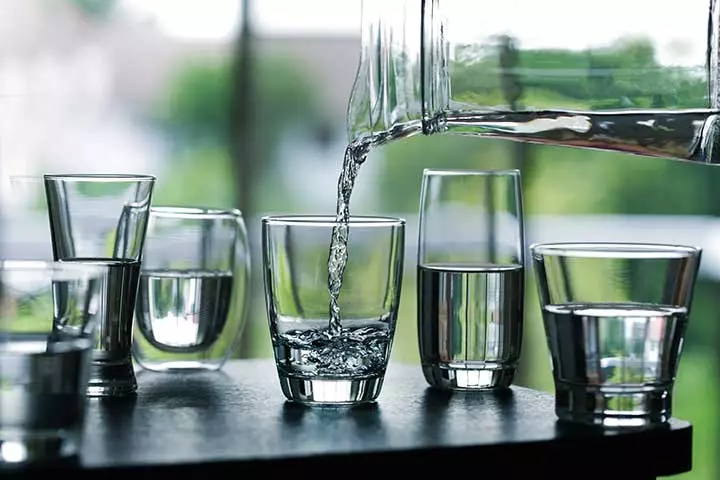
Research suggests that adults typically need 1 to 1.5ml of water for each calorie consumed. Therefore, as calorie requirements increase during each trimester of pregnancy, water needs also increase. Here’s how the water needs based on the increased calorie requirements can be calculated for each trimester (7) (8):
- First trimester: Most normal-weight, healthy pregnant women need about 1800 calories daily in the first trimester. Thus, their total daily water requirement should be around 1.8 to 2.7 liters (approximately 61 to 91 ounces or 8 to 11 cups).
- Second trimester: Expecting women in the second trimester need 2200 calories daily. Hence, it is recommended that mothers consume 2.2 to 3.3 liters (74 to 112 ounces or 9 to 14 cups) of water daily.
- Third trimester: During the third trimester, the recommended daily calorie intake is about 2400 calories, corresponding to a daily water requirement of 2.4 to 3.6 liters, or approximately 81 to 122 ounces, or 10 to 15 cups.
 Point to consider
Point to considerWhat Are The Benefits Of Staying Hydrated During Pregnancy?

Sufficient water intake during your pregnancy could help (5) (9) (10):
- Stay cool
- Alleviate morning sickness and nausea
- Aid digestion
- Reduce edemaiAccumulation of excess fluid in the body's tissues
- Enhance energy
- Reduce the risk of urinary tract infections
- Lower the risk of early contractions and preterm labor
- Hydrate skin
- Prevent constipation and associated hemorrhoidsiSwollen veins in and around the anus and rectum
 Things to know
Things to knowWhat Are The Signs Of Dehydration In Pregnancy?

Insufficient water intake during pregnancy can lead to dehydration. Dehydration is when one’s water intake is less than the water excreted, making it difficult for the body to perform different functions. The signs of dehydration in pregnancy may include (11):
- Feeling thirsty
- Dark yellow or strong-smelling urine
- Dizziness
- Fatigue
- Dryness of mouth, lips, and eyes
- Reduced urinary frequency, fewer than four times a day
Seek prompt medical guidance if these symptoms persist even after drinking enough water.
What Types Of Water Are Safe In Pregnancy?
Contaminants in water may cause health issues, especially in pregnant women. So, ascertaining the safety of drinking water is imperative.
Tap water
The US Environmental Protection Agency (US EPA) ensures that public water supplies within the United States are safe. However, harmful chemicals like lead can enter the water through corroded pipes, faucets, and fixtures. Thus, regular plumbing maintenance is essential, especially if you live in an old house and building that may lead to pipes. Additionally, use cold tap water instead of hot tap water for drinking and cooking to reduce the amount of lead in water.
Note: EPA does not monitor the quality of drinking water from privately owned wells. Therefore, if your water comes from them, you must get it tested regularly to ensure its safety (12) (13).
Filtered water
Water is unsafe to drink in many parts of the world, so filtered water can help you stay protected. However, different filters serve different purposes, and you would need to choose the appropriate one for your requirement (14).
Bottled water
It is safe and is specifically useful while traveling when you are unsure of tap water’s safety (15). However, one should not drink highly mineralized bottled water daily, as it may cause higher than required levels of minerals, such as sodium, in the body (16).
Others
You may also have sparkling water or flavored water during pregnancy. However, some flavored waters may contain sugar or some other form of sweeteners. Thus, it is best to avoid them (9) (17).
Are There Any Tips For Water Consumption During Pregnancy?

Drinking a calculated amount of water daily can be tiring, but these practical tips may help make it easier for you (18) (19):
- Keep a water bottle handy on the desk, or carry it around with you so you may remember to drink water.
Drink water whenever thirsty and before and after physical activity (9) Choose water over soda or energy drinks. - Make it a habit to drink water first after you wake up. Also, drink some water after each meal and snack.
- Prepare refreshing flavored water by adding mint leaves and slices of lemon or fruits, like strawberry, to the water.
- Freeze fresh fruits into ice cubes and add them to your glass of water for variety. You may use sparkling water.
- Set a timer on your phone that will remind you to drink water at regular intervals (20).
- Carry your water bottle while traveling so that you are not dependent on anything other than water for hydration. It also prevents waterborne diseases due to drinking water from potentially unsafe sources.
 Quick tip
Quick tipFrequently Asked Questions
1. Can you drink too much water during pregnancy?
Drinking too much water while pregnant may be possible, but overhydration is rare. Still, expecting women with heart or nerve issues should stay cautious, as excessive water intake can cause an imbalance of electrolytes such as sodium, chloride, calcium, and magnesium in the body (21). Severe overhydration may have symptoms similar to dehydration, such as confusion and seizures (19).
2. What happens if you don’t drink enough water while pregnant?
Insufficient water intake during pregnancy can cause dehydration, which may adversely affect the mother and the baby and cause complications such as low amniotic fluid and preterm labor. Dehydration is also known to trigger Braxton Hicks contractions (false labor pains) (22) (23).
3. How do I know if I’m drinking enough water during pregnancy?
If you are not thirsty often and your urine is pale yellow or colorless, it indicates you are drinking enough water (1). However, if your prenatal vitamins contain Riboflavin (a B complex vitamin), it may impart a bright yellow color to your urine, creating confusion (24).
4. Can dehydration cause miscarriage?
Dehydration isn’t typically considered a direct cause of miscarriage. However, severe dehydration can cause physiological issues, which may increase the risk of miscarriage. Some studies have shown that increased fluid intake is associated with a reduced risk of miscarriages (25) (26)
5. Can drinking too much water cause dry mouth during pregnancy?
No, drinking too much water does not cause dry mouth. In fact, dry mouth is a common sign of dehydration. When the body is dehydrated, it does not produce enough saliva, which leads to dry mouth.
6. Can I drink water at night during pregnancy?
There’s no restriction on drinking water at night during pregnancy. However, as pregnancy progresses, drinking water close to bedtime may demand frequent trips to the bathroom, which can disturb your sleep (27).
Pregnancy is a crucial phase where your water intake affects you and your baby. Thus, knowing how much water should a pregnant woman drink and then taking steps to meet those needs is essential. Remember, proper hydration is vital for a healthy pregnancy. Pregnant women need to drink eight to 12 cups of water daily, and the requirement may vary depending on the trimester and the level of physical activity. Drinking plain water is considered best to hydrate your body as it is a zero-calorie option. However, you may use sparking or flavored water for variety (28) (29) (30).
Infographic: Pregnancy-Safe Hydrating Beverages For Moms-To-Be
Drinking plain water throughout the day can feel boring, but staying hydrated during pregnancy is vital for you and your baby. Our infographic provides a list of nutritious beverages you can easily include in your pregnancy diet. Also, we share the necessary precautions you should follow to make these drinks safe for you and your baby. Illustration: Momjunction Design Team
Illustration: How Much Water Should A Pregnant Woman Drink?

Image: Stable Diffusion/MomJunction Design Team
References
- Staying healthy and safe.
https://womenshealth.gov/pregnancy/youre-pregnant-now-what/staying-healthy-and-safe - The Water in You: Water and the Human Body.
https://www.usgs.gov/special-topics/water-science-school/science/water-you-water-and-human-body# - About Water and Healthier Drinks.
https://www.cdc.gov/healthy-weight-growth/water-healthy-drinks/?CDC_AAref_Val=https://www.cdc.gov/healthyweight/healthy_eating/water-and-healthier-drinks.html - Na Zhang et al.; (2020); Associations between hydration state and pregnancy complications maternal-infant outcomes: protocol of a prospective observational cohort study.
https://bmcpregnancychildbirth.biomedcentral.com/articles/10.1186/s12884-020-2765-x - How much water should I drink during pregnancy?
https://www.acog.org/womens-health/experts-and-stories/ask-acog/how-much-water-should-i-drink-during-pregnancy - Courtney Keilman and Anthony L. Shanks; (2022); Oligohydramnios.
https://www.ncbi.nlm.nih.gov/books/NBK562326/ - Kristen S. Montgomery; (2002); Nutrition Column An Update on Water Needs during Pregnancy and Beyond.
https://www.ncbi.nlm.nih.gov/pmc/articles/PMC1595116/ - Eating right during pregnancy.
https://medlineplus.gov/ency/patientinstructions/000584.htm# - How Hydration During Pregnancy Can Benefit You and Your Baby.
https://intermountainhealthcare.org/blogs/how-hydration-during-pregnancy-can-benefit-you-and-your-baby - An Essential Guide on What to Eat During Pregnancy.
https://www.fhcsd.org/prenatal-care/what-to-eat-during-pregnancy/ - How much water should I drink in pregnancy?
https://www.tommys.org/pregnancy-information/im-pregnant/nutrition-in-pregnancy/how-much-water-should-i-drink-pregnancy - About Drinking Water.
https://www.cdc.gov/drinking-water/about/?CDC_AAref_Val=https://www.cdc.gov/healthywater/drinking/drinking-water-faq.html - Lead Public Advisory.
https://www.michigan.gov/egle/about/organization/drinking-water-and-environmental-health/lead-and-copper-in-drinking-water/lead-public-advisory - About Choosing Home Water Filters.
https://www.cdc.gov/drinking-water/prevention/about-choosing-home-water-filters.html?CDC_AAref_Val=https://www.cdc.gov/healthywater/drinking/home-water-treatment/water-filters.html - Travelling in pregnancy.
https://www.nhs.uk/pregnancy/keeping-well/travelling/ - C Marie et al.; (2017); Intakes of minerals linked to the drinking of bottled waters by French pregnant women.
https://academic.oup.com/eurpub/article/27/suppl_3/ckx187.241/4556210 - Hydration and pregnancy.
https://www.nutrition.org.uk:443/nutrition-for/pregnancy/ - Water – a vital nutrient.
https://www.betterhealth.vic.gov.au/health/healthyliving/water-a-vital-nutrient - How Much Water Do You Need?
https://www.eatright.org/health/essential-nutrients/water/how-much-water-do-you-need - 6 easy tips to drink more water daily.
https://www.gundersenhealth.org/health-wellness/staying-healthy/6-easy-tips-to-drink-more-water-daily - Are you over-hydrated?
https://www.gundersenhealth.org/health-wellness/eat-move/are-you-over-hydrated - Dehydration During Pregnancy.
https://americanpregnancy.org/womens-health/dehydration-pregnancy/# - Deborah A. Raines and Danielle B. Cooper; (2022); Braxton Hicks Contractions.
https://www.ncbi.nlm.nih.gov/books/NBK470546/# - Riboflavin.
https://www.urmc.rochester.edu/encyclopedia/content.aspx?contenttypeid=19&contentid=vitaminb-2 - Na Zhang et al.; (2020); Associations between hydration state and pregnancy complications maternal-infant outcomes: protocol of a prospective observational cohort study.
https://www.ncbi.nlm.nih.gov/pmc/articles/PMC7006388/ - Breanna L. Alman et al.; (2017); Associations between maternal water consumption and birth defects in the National Birth Defects Prevention Study (2000-2005).
https://www.ncbi.nlm.nih.gov/pmc/articles/PMC6193258/ - Urination: Frequent Urination.
https://my.clevelandclinic.org/health/symptoms/15533-frequent-urination - Morning Sickness.
https://www.healthywa.wa.gov.au/Articles/J_M/Morning-sickness - Dairy and Eggs – Food Safety for Moms to Be.
https://www.fda.gov/food/people-risk-foodborne-illness/dairy-and-eggs-food-safety-moms-be - Fruits Veggies and Juices – Food Safety for Moms to Be.
https://www.fda.gov/food/people-risk-foodborne-illness/fruits-veggies-and-juices-food-safety-moms-be
Community Experiences
Join the conversation and become a part of our nurturing community! Share your stories, experiences, and insights to connect with fellow parents.
Read full bio of Dr. Swati Chitnis
Read full bio of Dr. Joyani Das
Read full bio of Rebecca Malachi
Read full bio of Reshmi Das






